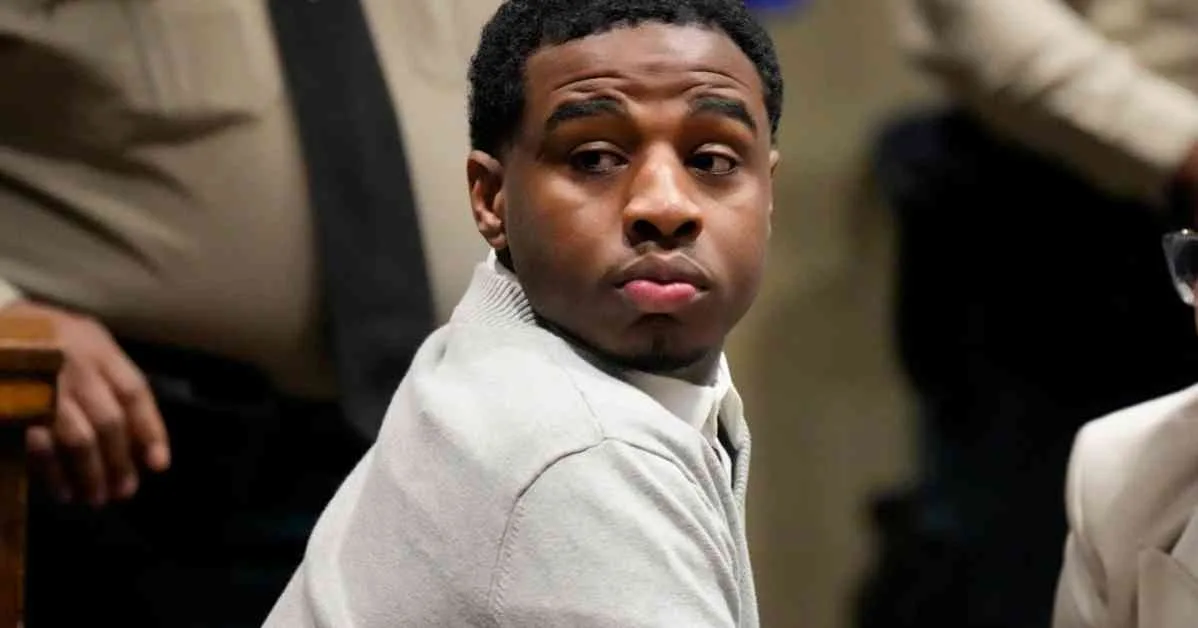**Man Convicted and Sentenced to Life Imprisonment for Young Dolph Murder**
In a landmark ruling, Justin Johnson was found guilty of murder in the tragic death of rapper Young Dolph. The jury reached their verdict after hearing compelling testimony from a co-defendant, shedding light on a feud between rival record labels that ultimately led to the fatal shooting of the beloved artist.
### Feud Between Rival Record Labels
The trial revealed shocking details of the feud between rival record labels that ultimately escalated into violence. Cornelius Smith, a co-defendant in the case, testified that rapper Yo Gotti’s brother, Anthony “Big Jook” Mims, had ordered a hit on Young Dolph, offering a staggering $100,000 bounty for his demise. Additionally, bounties were placed on all the artists affiliated with Young Dolph’s record label, Paper Route Empire.
Smith recounted the events leading up to the tragic incident, stating that he and Johnson were on a mission to target someone on the fateful day of November 17, 2021. They spotted Young Dolph’s car and followed him to a Memphis cookie shop, where they mercilessly opened fire in broad daylight. The fatal shooting resulted in Young Dolph being struck 22 times, ultimately leading to his untimely demise.
### Young Dolph’s Legacy and Struggle for Independence
Young Dolph, whose real name was Adolph Thornton Jr., was a rising star in the music industry known for his determination to succeed as an independent artist. He strived to make a name for himself both as an artist and as the founder of his own record label. However, his pursuit of independence and success led to the creation of enemies within the industry.
Deputy District Attorney Paul Hagerman highlighted Young Dolph’s refusal to work with Cocaine Muzik Group, a rival record label founded by Yo Gotti. Despite lucrative offers, Young Dolph remained steadfast in his decision to pursue his career on his own terms. This decision sparked tensions between the two record labels, culminating in a series of diss tracks and confrontations.
### Trial and Conviction
During the trial, prosecutors presented a substantial amount of circumstantial evidence, including surveillance footage and data from Johnson’s cell phone. Despite Johnson’s plea of not guilty, the evidence corroborated Smith’s testimony, pointing to Johnson’s involvement in the murder. Phone records revealed communication between Smith and Johnson leading up to the fatal shooting, as well as interactions with Big Jook following the incident.
Despite the defense’s attempts to discredit Smith’s testimony, the jury found Johnson guilty of murder, conspiracy to commit murder, and possession of a firearm as a felon. As a result, Shelby County Criminal Court Judge Jennifer Mitchell sentenced Johnson to life imprisonment, marking the end of a long and harrowing legal battle.
### Continued Legal Proceedings
In addition to Johnson and Smith, several other individuals have been implicated in the case. Jermarcus Johnson, who pleaded guilty to serving as an accessory after the murder, has yet to be sentenced. Hernandez Govan, identified as a go-between in the plot, has also pleaded not guilty to orchestrating the killing, further complicating the legal proceedings surrounding Young Dolph’s tragic death.
The trial shed light on the complex web of relationships and rivalries within the music industry, highlighting the dangers and consequences of escalating conflicts between artists and record labels. As the legal proceedings continue, the legacy of Young Dolph serves as a poignant reminder of the challenges faced by independent artists in an industry fraught with competition and tension.
As the music world mourns the loss of a talented artist, the case serves as a stark reminder of the importance of seeking justice and accountability in the face of senseless violence. Young Dolph’s memory lives on through his music and the impact he made on the industry, while his tragic death serves as a cautionary tale of the perils of unchecked rivalries and feuds within the music community.






















